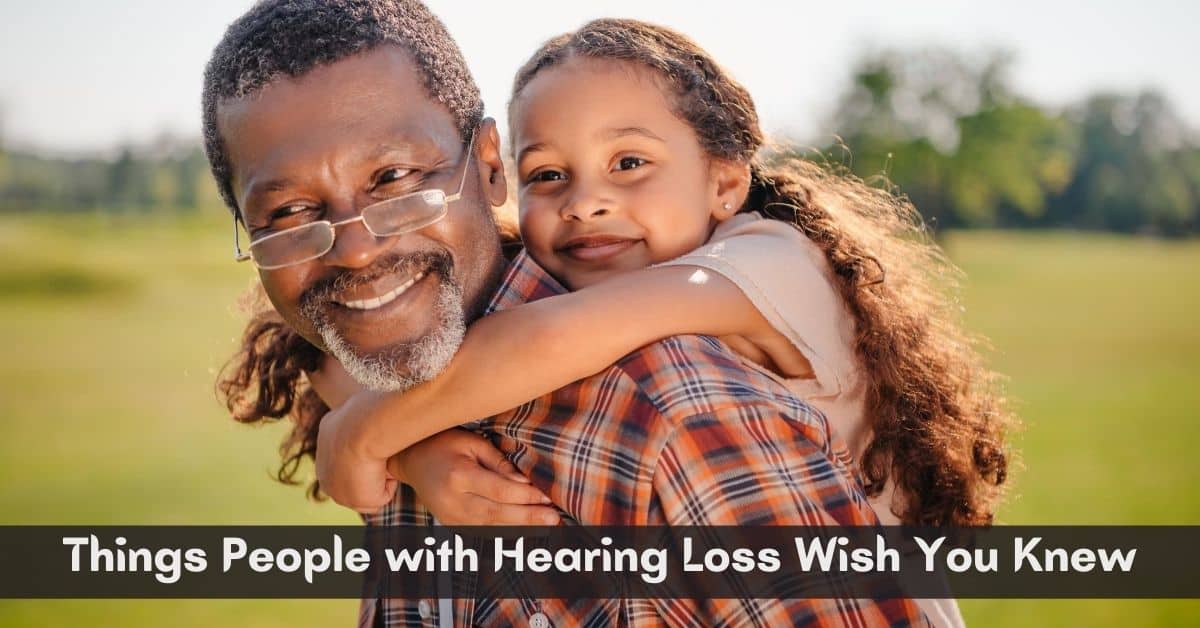Hearing loss changes the way you move in the world, but it is often an invisible condition. If you live with hearing loss, you may be in many situations where your impairment feels ignored, unconsidered or misunderstood. However, with over 48 million people in the U.S. living with hearing loss, nearly everyone is in contact with someone who has hearing loss. Increased public understanding of hearing loss is important for building a more accessible world.
If you don’t have hearing challenges, what do you need to consider for people who do live with them? Here are a few of the top things people with hearing loss wish you knew:
Hearing Loss is Hard Work
People aren’t used to thinking about the act of hearing as “work” but when hearing loss becomes an issue, comprehending incoming sounds can become exhausting. With normal hearing, the brain has been fine-tuned to streamline its process of intake and understanding, using well-established pattern recognition and mental shortcuts to make hearing “happen” near-instantaneously.
When hearing loss is present, that efficient process is upended. Hearing becomes a mental scramble to piece together incomplete information to discern the meaning and source of sound. For those with hearing loss, a great deal of additional cognitive effort needs to be given to comprehending sound. While it doesn’t seem like physical exertion, this cognitive strain is labor, and it can lead to fatigue.
Even when hearing loss is treated with hearing aids, it is important to understand that people with hearing loss have to exert extra energy and concentration in order to hear, and that they may need to rest their bodies and their hearing between periods of activity.
It Is Important to Provide Cues
When someone’s hearing is not 100%, it is important to make what you say more accessible to their hearing. Indicate that you are going to speak before you start talking, and make sure they can see your lips moving as you speak. In this era of facemasks, look for masks that provide visibility panels for the mouth, so lip reading can be clearer. For digital conferencing, use video when you speak rather than just audio.
Similarly, don’t speak to someone from another room – sound obstacles will make hearing extremely difficult. When information is misunderstood, restate it so it can be comprehended better, or use another way of conveyance like writing or texting. Don’t get upset or frustrated at a person’s hearing loss – focus on communication solutions.
Hearing Loss Isn’t Rudeness
Many people often mistake hearing loss for intentional ignoring, and may read hearing loss as rudeness. Those with hearing loss can often have trouble detecting speech, especially new voices to a conversation or voices coming from an unexpected direction. If someone you know doesn’t respond when you speak to them, make sure you are accessible to their hearing, and don’t assume they are being rude.
As stated before, it takes extra concentration and effort for people with hearing loss to engage in conversation. In noisy and busy environments it can be even more challenging. If a person doesn’t immediately answer you when you speak to them, give them the benefit of the doubt, rather than letting your feelings be hurt.
Understand How Hearing Aids Help
Hearing aids are an important way to help manage hearing loss, but they don’t instantly restore lost hearing. Unlike glasses, the enhancements that hearing aids provide are a process of ongoing adjustment, rather than an instantaneous refocusing. Hearing aids help those with hearing loss by amplifying challenging sound frequencies, but using hearing aids often requires part of the brain to “relearn” hearing, which takes time.
When talking with someone who uses hearing aids, speaking clearly is more important than speaking loudly. Shouting volume can blow out in a hearing aid’s calibration of sound, so speak at a legible volume and articulate your words.
Sometimes unexpected sounds in a room such as a fan or dishwasher noise can become distractingly loud when picked up by a hearing aid. Check in with the person you are conversing with to make sure the environment is appropriate for conversation.
Above all, hearing aids give people with hearing loss many advantages in managing challenging hearing situations. If you have questions about how a person hears best, ask them discreetly and follow their suggestions.
If you are ready to treat your hearing loss, contact us today for a consultation and hearing test.

